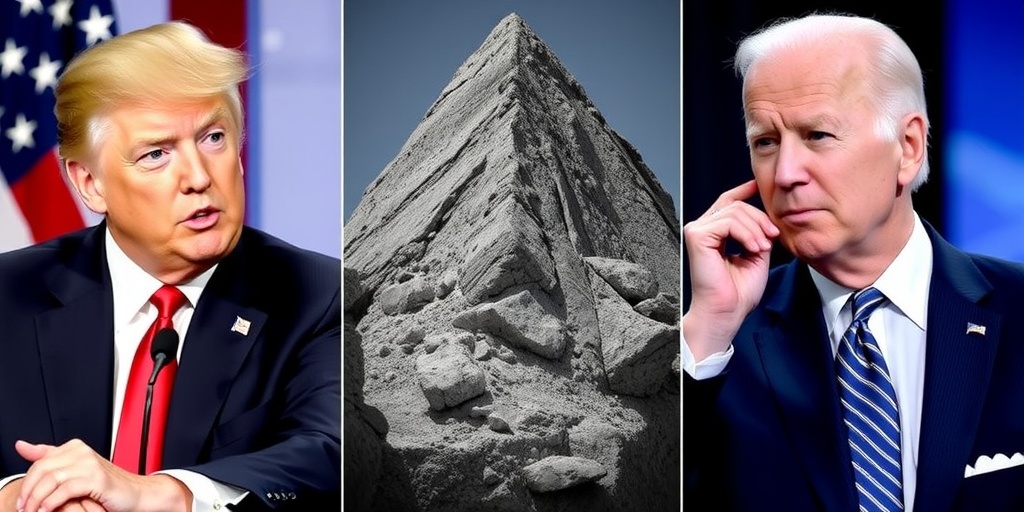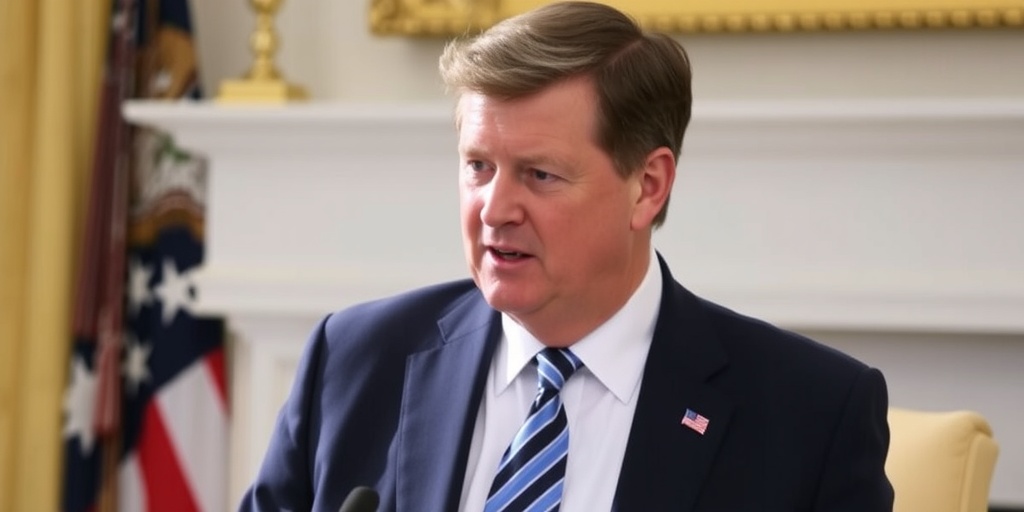Now Reading: Judge Denies Bid to Halt Migrant Detention at Guantánamo
-
01
Judge Denies Bid to Halt Migrant Detention at Guantánamo
Judge Denies Bid to Halt Migrant Detention at Guantánamo
Federal Judge Dismisses Immediate Challenge Against Migrant Transfers to Guantánamo Bay
In a recent ruling, a federal judge has temporarily rejected efforts to block the Trump administration from transferring migrants to the Guantánamo Bay military base in Cuba. The judge, Carl Nichols of the U.S. District Court for the District of Columbia, expressed that the legal challenges were moot since the government had already emptied the military facility of detainees. This ruling represents a significant moment as the Trump administration aims to utilize the base as part of its increasing efforts in deportation.
President Trump has publicly stated his intention to use the base’s capacity of 30,000 beds to detain what he refers to as "the worst criminal illegal aliens threatening the American people." In line with this initiative, he issued an executive order in January to expand the Migrant Operations Center at Guantánamo Bay, asserting the need for additional detention space designed specifically for high-priority criminal aliens. To date, the administration has sent a limited number of migrants to Guantánamo; however, it remains unclear how many were labeled dangerous criminals.
Just days before the hearing, the Trump administration took the unexpected step of returning a group of migrants from Guantánamo to the United States. This marked the second instance where federal officials abruptly cleared migrants from the base after sending them. In late February, the government repatriated all but one of the 178 detained Venezuelan migrants, who had only spent a few weeks at the facility.
During the court session, Judge Nichols heard two lawsuits brought forth by migrants and their advocates. Less than half an hour after the legal arguments concluded, Nichols determined that the plaintiffs had not sufficiently demonstrated that they were experiencing irreparable harm that would necessitate a temporary order to block the administration’s current policies. He did indicate, however, that should any of the migrants involved be sent to Guantánamo, he would be willing to consider an emergency order.
The Justice Department has committed to notifying Judge Nichols if any of the plaintiffs are relocated to Guantánamo and must report back to the court by Wednesday regarding the timeline of any such transfers. Despite this, Judge Nichols raised concerns that the plaintiffs might not prevail in their case, given the absence of migrants at Guantánamo at this moment.
In the first lawsuit, the plaintiffs argued against the administration’s decision to bar migrants from having in-person access to legal counsel, particularly in light of the recent transfers of Venezuelan citizens to the base. Lead attorney Lee Gelernt contended that this policy infringed on their rights. However, Justice Department attorney Sarah Wilson defended the government’s position, suggesting that logistical hurdles and security clearances necessary for the relocation made it challenging to offer such access to lawyers.
The second lawsuit involved ten migrants who feared they would be transferred to Guantánamo due to their nationalities and existing removal orders. These plaintiffs argued that the government had no legal right to detain migrants outside the United States and claimed that conditions at Guantánamo were markedly worse than those at domestic detention centers. Justice Department attorney Drew Ensign countered that immigration enforcement inherently involves the movement of individuals across borders, thereby allowing the government to maintain custody of migrants with removal orders overseas.
Gelernt contested Ensign’s argument, asserting that the migrants at Guantánamo were not in transit nor undergoing the removal process. He emphasized that no previous administration had claimed a right to detain migrants extraterritorially, and highlighted the harsher treatment that migrants could face at Guantánamo, including strip searches, shackling, and solitary confinement, making relocation there unconstitutional.
Judge Nichols showed particular interest in whether immigration law permitted the government to detain migrants in facilities located outside the United States. While he refrained from presenting a definitive answer, he identified the issue as a serious concern.
Ultimately, Judge Nichols rejected the argument that a brief stay at Guantánamo would irreparably harm the migrants. He noted that should any of the plaintiffs be moved to the base, their lawyers would be able to seek an emergency order to return them to the United States, likely within a few days.
After the ruling, Gelernt expressed frustration, stating that the administration was effectively avoiding scrutiny of its policy by continually relocating migrants. He suggested that advocacy groups may pursue a broader challenge by filing a class-action lawsuit, highlighting concerns that the government was attempting to dismiss legal cases as moot through such relocations. In response to the developments, the Justice Department indicated it would seek to have the case dismissed.
Stay Informed With the Latest & Most Important News
Previous Post
Next Post
-
 01New technology breakthrough has everyone talking right now
01New technology breakthrough has everyone talking right now -
 02Unbelievable life hack everyone needs to try today
02Unbelievable life hack everyone needs to try today -
 03Fascinating discovery found buried deep beneath the ocean
03Fascinating discovery found buried deep beneath the ocean -
 04Man invents genius device that solves everyday problems
04Man invents genius device that solves everyday problems -
 05Shocking discovery that changes what we know forever
05Shocking discovery that changes what we know forever -
 06Internet goes wild over celebrity’s unexpected fashion choice
06Internet goes wild over celebrity’s unexpected fashion choice -
 07Rare animal sighting stuns scientists and wildlife lovers
07Rare animal sighting stuns scientists and wildlife lovers



















